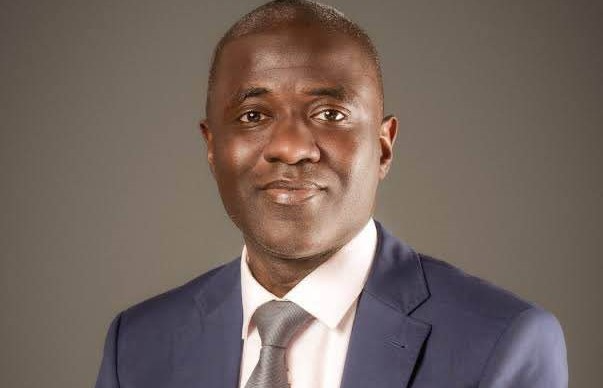At the National Communications Commission (NCC), there is a new kid in the block: Aminu Maida, the Executive Vice Chairman and Chief Executive Officer, who assumed the position on 11th of October 2023 following his appointment by President Bola Ahmed Tinubu.
Maida whose academic background is in Electrical & Electronic Engineering, with a PhD from Bath University, UK, a Masters in Engineering in Information Systems Engineering from Imperial College London, as well as a Post Graduate Diploma in Entrepreneurship from Cambridge Judge Business School, is addressing “simple things like the SIM registration process, how we link our NIN to SIMs, especially with the younger generation who do not have the level of patience that we have,” because he concedes that “this kind of thing is very important for them; they just want to get things done.”
More than these, however, he is also looking at the big picture. He has already identified some areas and since his assumption of office, it’s been “observation, fact-finding, engaging key stakeholders in a very silent way and also trying to feel the pulse of the people in terms of what they want and of course in terms of policy direction.
At one of the forums with key stakeholders, Maida made very clear distinctions between the roles of the three groups of stakeholders within the industry — the government that sets the policy direction, the industry, and the consumers.
He said the government has set the target regarding where the NCC is heading in terms of growth and what the communications sector should contribute to the GDP, saying: “If we do it right, it will create more jobs and more revenue for the government and we will enable other agencies as well.”
He cautions against the tendency to see NCC as a revenue-yielding agency on account of the off-cycle auctions of spectrum, which the industry needs to grow. He says when those off-cycle events happen in one year, the expectation is that such revenues should accrue every year.
Reflecting the consumer-centric commitment of NCC under his watch, he takes time to elaborate on what’s on offer to them. “I will summarize it in this way: we are looking to improve the total quality of their experience, and when we say quality of experience, it’s not necessarily just looking at faster speed coverage, but also the total quality of experience.”
He is committed to evolving a system to measure quality of service. “I bet you almost everybody is using a dual or a multiple sim phone, not because we want but because of the need to stay connected. This is our way of staying connected, if this one is not working, the other one will work. So, we need to find a way to make it easier for consumers to decide which networks or service providers they should use.”
On how will NCC achieve a data-centric approach, Maida said: “Today the commission collects a lot of data, but how do we use that data, how do we present that data? We present data sometimes at the national level, but truly, some of the problems are local, and I doubt if this data is available at the local government or zonal levels. So, we are looking at moving to a place whereby we can start looking at data, maybe at local government levels, so that when we are looking at issues, we can localize them instead of focusing on performance of the industry at the national level.”
He’s also mindful of the interest of the consumers – if they can afford more than one SIM now, can they in the future when, putting into consideration, the likelihood of increase of cost of obtaining and maintaining them as could be dictated by various factors?
He says NCC is determined to play the effective regulator role assuring that the commission will work towards the sector becoming better; work towards improving total customer experience through data collection, transparency, and driving compliance.
On the security dimension of NCC’s regulatory functions, he posits that one of the problems today is that a fraudster can use a phone number to perpetrate fraud in one institution and go to another institution within the same industry and perpetrate another fraud with the same number, with zero consequences. But he says if a phone number used for this purpose is blacklisted, the serial fraud would be impossible.
Dr. Maida’s technical prowess is further evidenced by the numerous patents he holds to his name in the areas of wireless communication and self-organizing networks. Here’s, therefore, another round peg in a round hole.
With Maida’s clear direction, bold initiative, commitment to transparent and accountable leadership, an unprecedented success in the areas of efficiency, cost-effectiveness, data management, reliability, and greater contribution of the sector to the country’s economic development, amongst others, is just around the corner.





